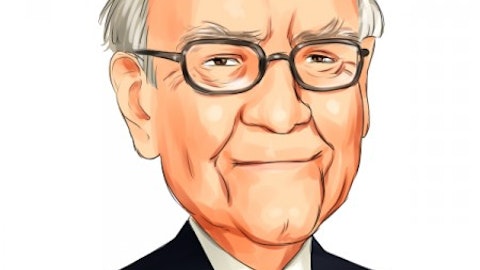Hedge funds are alternative investment vehicles available only to high-net-worth individuals, so most retail investors cannot afford the luxury of investing in a hedge fund. However, retail investors may attempt to smartly imitate some moves made by noteworthy hedge fund managers. Various SEC filings such as 13G, 13D, Form 4 and 13F filings enable retail investors to monitor and mimic most moves implemented by hedge fund vehicles. Although the overall hedge fund industry has disappointed investors in recent years, knowing what the industry thinks about certain stocks may be very valuable for the investment community. For that simple reason, this article will examine four SEC filings submitted by several investment firms monitored by Insider Monkey.
Through extensive research, we determined that imitating some of the picks of hedge funds and other institutional investors can help generate market-beating returns over the long run. The key is to focus on the small-cap picks of these investors, since they are usually less followed by the broader market and are less price-efficient. Our backtests that covered the period between 1999 and 2012, showed that following the 15 most popular small-caps among hedge funds can help a retail investor beat the market by an average of 95 basis points per month (see more details here).
Activist Nelson Peltz Sells 9.9% “Legg Mason”-Share Block to Singapore Firm
According to a newly-amended 13D filing, Nelson Peltz’ Trian Fund Management sold 10.53 million shares of Legg Mason Inc. (NYSE:LM) to Singapore-based investing holding company Shanda Group at $32 apiece. The 10.53 million-share block represents 9.9% of the company’s outstanding common stock. Following the implementation of the freshly-reached stock purchase agreement, Trian Fund continues to own 513,743 shares of Legg Mason, which account for a mere 0.48% of the company’s total number of outstanding shares. A fresh announcement released by Legg Mason says that Trian Fund has offloaded shares for portfolio management reasons.
Legg Mason Inc. (NYSE:LM) is a global asset management firm that offers investment management and other related services to institutional and individual clients, company-sponsored mutual funds, as well as other investment vehicles. The company’s total operating revenues for the nine months that ended December 31 totaled $2.04 billion, which decreased from $2.12 billion reported for the same period of the prior year. The decrease was mainly driven by a lower operating revenue yield, excluding performance fees, and lower performance fees. It should be mentioned that Mr. Peltz served on Legg Mason’s Board of Directors since October 2009 through the end of 2014, and forced former Chief Executive Officer and Chairman Mark Fetting to step down in October 2012. The company experienced 19 consecutive quarters of investor outflows between June 2007 and December 2011, with Mr. Peltz playing a positive role in smashing down that trend. Shares of Legg Mason are down 42% in the past year. A total of 33 hedge funds tracked by Insider Monkey had stakes in the asset management firm at the end of 2015, amassing nearly 28% of the firm’s outstanding shares. Andreas Halvorsen’s Viking Global owns 2.47 million shares of Legg Mason Inc. (NYSE:LM) as of the end of the final quarter of 2015.
Follow Legg Mason Inc. (NYSE:LM)
Follow Legg Mason Inc. (NYSE:LM)
Receive real-time insider trading and news alerts
Let’s head to the next pages of this article, where we will discuss three separate filings recently submitted with the SEC.
Embattled Sears Obtains Funding From ESL Investments and Bill Gates’ Cascade
In a separate 13D filing, Edward S. Lampert’s ESL Investments currently owns 64.52 million shares of Sears Holdings Corp (NASDAQ:SHLD), which account for 57.8% of the company’s outstanding shares. This compares with the stake of 64.17 million shares reported in ESL’s previous 13D filing on the company, which was filed with the SEC in early February. The filing also indicated that the embattled retailer entered into a $500 million secured loan facility last week, with $250 million received immediately. The remaining $250 million may be drawn in the future should the company fail to raise additional capital through a syndicated loan. A total of $125 million of the initial funding was provided by Mr. Lampert’s ESL Investments, while the remaining capital was offered by Cascade Investment LLC, the investment firm that manages Bill Gates’ personal wealth. The loan carries an interest rate of 8% per annum and is secured by mortgages on 13 properties owned by Sears Holdings; the loan will be secured by an additional eight properties should the company raise additional capital through the secured loan facility.
Sears Holdings Corp (NASDAQ:SHLD) operates a network of 1,672 full-line and specialty retail stores across the United States under Kmart and Sears brands. The struggling retailer has been having a hard time stopping the decline of its annual revenues, as the company’s top-line results have declined each year since 2007. Eddie Lampert, Chairman and Chief Executive Officer of Sears Holdings, has failed to stop the retailer’s freefall in recent years. The aforementioned secured loan facility will enable the company to complete its so-called transition into a more asset-light integrated retailer. The company’s revenues for fiscal 2015 that ended January 30 were $25.15 billion, down from $31.20 billion in fiscal 2014 and $36.19 billion in fiscal 2013. Sears Holdings has seen its share price decline 65% in the past 52 weeks. The number of money managers from our system with stakes in the retailer dropped to 20 from 22 during the December quarter. Murray Stahl’s Horizon Asset Management reported ownership of 3.13 million shares in Sears Holdings Corp (NASDAQ:SHLD) through the round of 13Fs for the final quarter of 2015.
Follow Sears Holdings Corp (AMEX:SHLD)
Follow Sears Holdings Corp (AMEX:SHLD)
Receive real-time insider trading and news alerts
Harvest Capital’s Ongoing Proxy Fight with Green Dot
In a proxy statement with the SEC, Joseph A. Jolson’s Harvest Capital Strategies LLC is seeking the support of Green Dot Corporation (NYSE:GDOT)’s shareholders for the election of its three nominees, Saturnino Fanlo, George W. Gresham, and Philip B. Livingston, to the company’s Board of Directors at its upcoming annual meeting of shareholders. Harvest Capital claimed that “Mr. Streit [Steve Streit, Green Dot’s Chairman and Chief Executive Officer] and other long-tenured directors are preventing Green Dot from capitalizing on meaningful opportunities in the evolving payments industry”. As discussed in previous articles about this proxy fight, Harvest Capital Strategies believes that the provider of reloadable prepaid debit cards is well-positioned to almost double its earnings per share within three years should the company implement several “self-help” initiatives proposed by the activist shareholder. Some of those initiatives include: the removal of Mr. Streit as CEO and install a proven leader who would inject new dynamism into the talented Green Dot organization, as well as rebuild credibility in the company throughout the investment community; the reconstruction of the Board and adoption of policies targeting shareholder alignment; the readjustment of Green Dot’s strategic initiatives to balance realistic growth targets with profitability; and the alteration of the company’s cost structure and optimization of capital structure. To be more detailed on some of these initiatives, the company’s compensation and benefits, processing expenses, as well as general and administrative expenses have each increased at a higher rate than revenue since 2010, so Green Dot Corporation (NYSE:GDOT) might need to implement some restructuring indeed. According to fresh filings, Harvest Capital owns 4.72 million shares of Green Dot, which constitute 9.5% of the company’s total number of outstanding shares. Green Dot’s shares have gained 32% since the beginning of 2016, with the activist campaign playing a big role in this exceptional performance. There were 12 hedge funds monitored by our team with long positions in Green Dot at the end of December, hoarding 11% of the company’s shares. Ken Griffin’s Citadel Advisors LLC was the owner of 1.46 million shares in Green Dot Corporation (NYSE:GDOT) at the end of December.
Follow Green Dot Corp (NYSE:GDOT)
Follow Green Dot Corp (NYSE:GDOT)
Receive real-time insider trading and news alerts
Friendly Activist Ubben Owns 16.6% Stake in Freshly-Separated Armstrong Flooring
In a new Schedule 13D filing, Jeffrey Ubben’s ValueAct Capital reported a new stake of 4.60 million shares in Armstrong Flooring Inc. (NYSE:AFI), which make up 16.6% of the company’s outstanding common stock.
Earlier this month, the producer of resilient and wood flooring products completed its separation from Armstrong World Industries Inc. (NYSE:AWI). In 2015, Armstrong World Industries announced plans to separate its Resilient Flooring and Wood Flooring segments, which are now operated by Armstrong Flooring, from its Building Products (Ceilings) segment. The separation was completed through a pro rata distribution, with each AWI shareholder receiving one share of AFI common stock for every two shares of AWI common stock. As Mr. Ubben’s ValueAct owned 9.20 million shares of Armstrong World Industries Inc. (NYSE:AWI) on December 31 and kept its equity stake unchanged through the completion of the separation, the friendly activist investor received 4.60 million shares of newly-formed Armstrong Flooring Inc. (NYSE:AFI). The aforementioned separation was set to create two leading companies in their respective markets, as well as enable the two companies to benefit from increased strategic focus, restructured operating structures and more efficient capital allocation. The filing also reveals that the activist hedge fund reached an agreement with Armstrong Flooring under which Jacob H. Welch, a partner at ValueAct Capital, was appointed to the company’s Board of Directors. However, Mr. Welch will be required to resign from the Board should ValueAct’s ownership in the company drop below the 7.5% mark.
Follow Armstrong Flooring Inc. (NYSE:AFI)
Follow Armstrong Flooring Inc. (NYSE:AFI)
Receive real-time insider trading and news alerts
Disclosure: None




